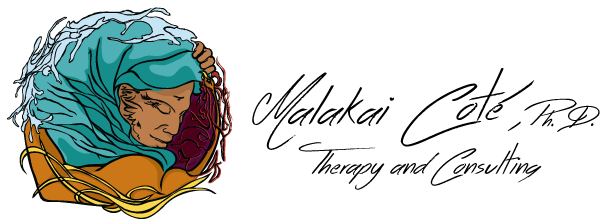No one's gender identity journey is alike. Some folks feel most comfortable being gender fluid or genderqueer by occupying space between masculinities and feminitities. Some folks express gender and feel that their identity is beyond a binary. They may choose to challenge a variety of assumptions about gender and re-make, re-mold, re-conceptualize what it means to be a gendered person in the world. Individuals may choose to use gender neutral pronouns such as: "they," "hir," or maybe even "ze." Folks may choose to dress in ways that make it more difficult to be "read" as a specific, traditional binary gender.
And yet some folks, may feel uncomfortable and distressed about characteristics that are associated with their assigned birth sex (i.e., low or high voice pitch, lack of facial hair or too much body hair, presence of Adam's apple) and seek to change those characteristics through hormone replacement therapy, gender affirming surgeries, and/or voice therapy. These medical procedures and treatments are medically necessary.
There is no one transgender narrative or journey!
There is no one way to embody transness or your gender identity!
Your unique experience that includes your gender identity, gender expression, and other intersecting identities (race, religion/spirituality, sexual identity, social background) impact your authentic way of being in the world. All of who you are will impact how you "do your transness."
Potential Challenges on the Journey
But, let's be real, sometimes there may be pressure to be a "certain kind of trans" based on specific expectations about gender embodiment. Fitting in within cisgender and/or transgender community norms may seem like a challenge, especially when most people seek acceptance, validation, and care in the company of others. There can also be pressure to not acknowledge or allow oneself to embody their transness at all.
We reside in a society and sometimes in families that can be very prescriptive, judgmental, and punishing, especially when people appear to not fit in the expected ways of being. Transphobia (often taking the form of discrimination, harassment, and violence) and internalized transphobia (often taking the form of self-disdain, shame, depression, guilt) can often serve as obstacles. Add in family pressure, pressure from partner(s) and/or challenging work situations, and the barriers can seem pretty daunting. People can also have legitimate fears of being kicked out of families, rejected by intimate partners, have fears about community involvement, and/or fears about specific job and academic repercussions.
Due to stigma, discrimination, and violence, some trans folks are more likely to be experience sadness and depressed feelings, have trauma reactions, experience suicidal thoughts, have difficulties with alcohol or substance use, and/or be without permanent housing. Transwomen of color in particular have been subject to high rates of violence. It must also be shared that not everyone experiences the same risk factors, such as social rejection and violence; however, these factors do occur at alarmingly high rates.
Becoming Healed, Emerging Empowered
- We are resilient people and we have the capability to live empowered and healed lives!
There are options available to address social stigma, daily hassles and violence, that range from learning more about other transgender individuals' experiences, connecting with community and advocacy resources (e.g., transgender support groups, employment assistance, housing assistance) to engaging in healing psychotherapy. If your gender journey is to include medical interventions, it may be helpful to research and connect with trans affirmative healthcare providers. Other times, people may be in locations where provider options are limited and/or trans affirmative care appears to be unavailable. This is where advocacy groups can play an important role for folks.
Also, check out the writings and work of transgender activists and writers such as:
- Laverne Cox, Janet Mock, Dean Spade, Kortney Ryan Ziegler, Sylvia Rivera, Kate Bornstein, and Kylar Broadus
In addition, there are various community organizations that provide education, leadership training, and peer support for transgender and gender non-conforming folks. For example, in Sacramento, California the Gender Health Center also offers advocacy support and other programs for transgender and gender non-conforming individuals. Also, the Brown Boi Project based in Oakland, California works in community to support the development of healthy masculinities and developing new approaches to addressing gender, especially for folks of color. Finding supportive and affirmative spaces can be imperative, especially living in a world where folks are often condemned for deviating from gender norms and expectations.
